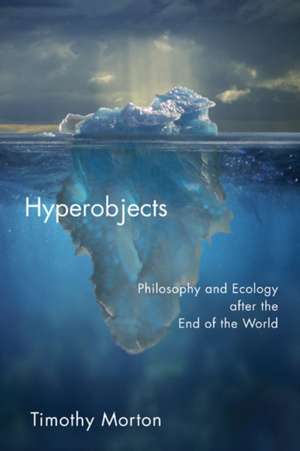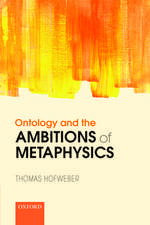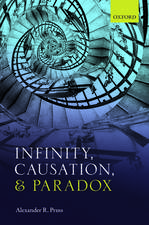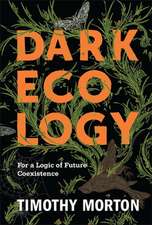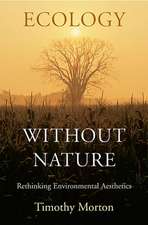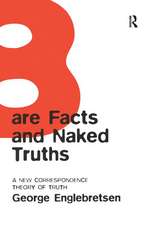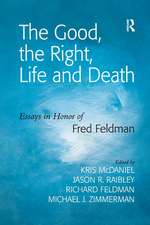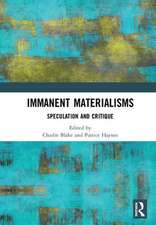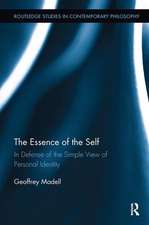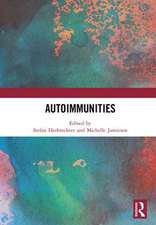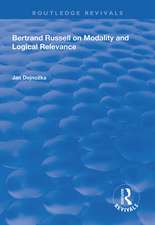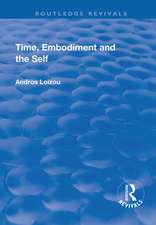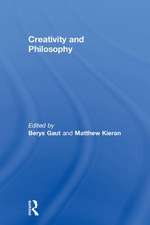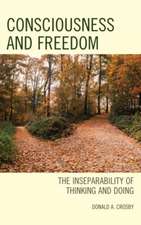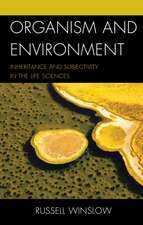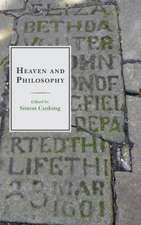Hyperobjects: Philosophy and Ecology after the End of the World: Posthumanities
Autor Timothy Mortonen Limba Engleză Paperback – 23 sep 2013
Having
set
global
warming
in
irreversible
motion,
we
are
facing
the
possibility
of
ecological
catastrophe.
But
the
environmental
emergency
is
also
a
crisis
for
our
philosophical
habits
of
thought,
confronting
us
with
a
problem
that
seems
to
defy
not
only
our
control
but
also
our
understanding.
Global
warming
is
perhaps
the
most
dramatic
example
of
what
Timothy
Morton
calls
“hyperobjects”—entities
of
such
vast
temporal
and
spatial
dimensions
that
they
defeat
traditional
ideas
about
what
a
thing
is
in
the
first
place.
In
this
book,
Morton
explains
what
hyperobjects
are
and
their
impact
on
how
we
think,
how
we
coexist
with
one
another
and
with
nonhumans,
and
how
we
experience
our
politics,
ethics,
and
art.
Moving fluidly between philosophy, science, literature, visual and conceptual art, and popular culture, the book argues that hyperobjects show that the end of the world has already occurred in the sense that concepts such as world, nature, and even environment are no longer a meaningful horizon against which human events take place. Instead of inhabiting a world, we find ourselves inside a number of hyperobjects, such as climate, nuclear weapons, evolution, or relativity. Such objects put unbearable strains on our normal ways of reasoning.
Insisting that we have to reinvent how we think to even begin to comprehend the world we now live in,Hyperobjectstakes the first steps, outlining a genuinely postmodern ecological approach to thought and action.
Moving fluidly between philosophy, science, literature, visual and conceptual art, and popular culture, the book argues that hyperobjects show that the end of the world has already occurred in the sense that concepts such as world, nature, and even environment are no longer a meaningful horizon against which human events take place. Instead of inhabiting a world, we find ourselves inside a number of hyperobjects, such as climate, nuclear weapons, evolution, or relativity. Such objects put unbearable strains on our normal ways of reasoning.
Insisting that we have to reinvent how we think to even begin to comprehend the world we now live in,Hyperobjectstakes the first steps, outlining a genuinely postmodern ecological approach to thought and action.
Din seria Posthumanities
-
 Preț: 215.66 lei
Preț: 215.66 lei -
 Preț: 162.00 lei
Preț: 162.00 lei -
 Preț: 123.92 lei
Preț: 123.92 lei -
 Preț: 188.33 lei
Preț: 188.33 lei -
 Preț: 170.61 lei
Preț: 170.61 lei -
 Preț: 112.18 lei
Preț: 112.18 lei -
 Preț: 171.91 lei
Preț: 171.91 lei -
 Preț: 185.87 lei
Preț: 185.87 lei -
 Preț: 185.21 lei
Preț: 185.21 lei -
 Preț: 145.56 lei
Preț: 145.56 lei -
 Preț: 169.30 lei
Preț: 169.30 lei -
 Preț: 107.71 lei
Preț: 107.71 lei -
 Preț: 146.17 lei
Preț: 146.17 lei -
 Preț: 154.56 lei
Preț: 154.56 lei -
 Preț: 178.55 lei
Preț: 178.55 lei -
 Preț: 111.14 lei
Preț: 111.14 lei -
 Preț: 214.28 lei
Preț: 214.28 lei -
 Preț: 155.47 lei
Preț: 155.47 lei -
 Preț: 213.70 lei
Preț: 213.70 lei -
 Preț: 169.70 lei
Preț: 169.70 lei -
 Preț: 153.59 lei
Preț: 153.59 lei -
 Preț: 186.23 lei
Preț: 186.23 lei -
 Preț: 179.48 lei
Preț: 179.48 lei -
 Preț: 187.41 lei
Preț: 187.41 lei -
 Preț: 304.84 lei
Preț: 304.84 lei -
 Preț: 119.68 lei
Preț: 119.68 lei -
 Preț: 242.71 lei
Preț: 242.71 lei -
 Preț: 187.73 lei
Preț: 187.73 lei -
 Preț: 138.99 lei
Preț: 138.99 lei -
 Preț: 185.76 lei
Preț: 185.76 lei -
 Preț: 216.24 lei
Preț: 216.24 lei -
 Preț: 224.90 lei
Preț: 224.90 lei -
 Preț: 218.74 lei
Preț: 218.74 lei -
 Preț: 223.55 lei
Preț: 223.55 lei -
 Preț: 222.01 lei
Preț: 222.01 lei -
 Preț: 198.89 lei
Preț: 198.89 lei -
 Preț: 222.18 lei
Preț: 222.18 lei -
 Preț: 209.96 lei
Preț: 209.96 lei -
 Preț: 178.37 lei
Preț: 178.37 lei -
 Preț: 204.11 lei
Preț: 204.11 lei -
 Preț: 208.36 lei
Preț: 208.36 lei -
 Preț: 223.55 lei
Preț: 223.55 lei -
 Preț: 234.10 lei
Preț: 234.10 lei -
 Preț: 230.95 lei
Preț: 230.95 lei -
 Preț: 170.98 lei
Preț: 170.98 lei - 19%
 Preț: 99.50 lei
Preț: 99.50 lei
Preț: 132.16 lei
Nou
Puncte Express: 198
Preț estimativ în valută:
25.29€ • 26.40$ • 20.93£
25.29€ • 26.40$ • 20.93£
Carte disponibilă
Livrare economică 15-29 martie
Livrare express 01-07 martie pentru 60.26 lei
Preluare comenzi: 021 569.72.76
Specificații
ISBN-13: 9780816689231
ISBN-10: 0816689237
Pagini: 240
Ilustrații: 23
Dimensiuni: 140 x 216 x 23 mm
Greutate: 0.33 kg
Ediția:New.
Editura: University of Minnesota Press
Colecția Univ Of Minnesota Press
Seria Posthumanities
ISBN-10: 0816689237
Pagini: 240
Ilustrații: 23
Dimensiuni: 140 x 216 x 23 mm
Greutate: 0.33 kg
Ediția:New.
Editura: University of Minnesota Press
Colecția Univ Of Minnesota Press
Seria Posthumanities
Notă biografică
Timothy Morton is Rita Shea Guffey Chair in English at Rice University. He is the author of many books, including The Ecological Thought and Ecology without Nature. He blogs frequently at Ecology without Nature.
Cuprins
Contents
Acknowledgments
A Quake in Being: An Introduction to Hyperobjects
Part I. What Are Hyperobjects?
Viscosity
Nonlocality
Temporal Undulation
Phasing
Interobjectivity
Part II. The Time of Hyperobjects
The End of the World
Hypocrisies
The Age of Asymmetry
Notes
Index
Acknowledgments
A Quake in Being: An Introduction to Hyperobjects
Part I. What Are Hyperobjects?
Viscosity
Nonlocality
Temporal Undulation
Phasing
Interobjectivity
Part II. The Time of Hyperobjects
The End of the World
Hypocrisies
The Age of Asymmetry
Notes
Index
Recenzii
InHyperobjects,
Timothy
Morton
brings
to
bear
his
deep
knowledge
of
a
wide
array
of
subjects
to
propose
a
new
way
of
looking
at
our
situation,
which
might
allow
us
to
take
action
toward
the
future
health
of
the
biosphere.
Crucially,
the
relations
between
Buddhism
and
science,
nature
and
culture,
are
examined
in
the
fusion
of
a
single
vision.
The
result
is
a
great
work
of
cognitive
mapping,
both
exciting
and
useful.
—Kim Stanley Robinson, author ofShaman,2312, and the Mars trilogy
—Kim Stanley Robinson, author ofShaman,2312, and the Mars trilogy
"Not only does Morton range from William Wordsworth to the Velvet Underground to Nagasaki to Republican denialism, he does it in a way that marshals these disparate allusions in the service of a cogent idea, one that manages to come off as both intuitive and radical."—Newsweek
"[This book] is bold, stimulating, and provocative. With extraordinary verve and audacity, Morton makes his hyperobjects into harbingers for a new epoch, on a planetary scale, a task in which he is assisted by the general consensus about the Anthropocene, the current era of human-induced planetary change."—Los Angeles Review of Books
"Whatever your hopes or fears for the next major era in human history, Morton is telling us that it has already happened and it is us."—3 Quarks Daily
"A relentless torrent of commentary that presents challenges to most contemporary scholarship on both sides of the still upheld nature/culture divide."—Qui Parle
"Morton’s work bridges a gap between academia and the global warming movement with a postmodern angle."—Vogue
"Morton is unafraid to mix theory with personal and often confessional material, anchoring his arguments to his own experience of the world."—A Year’s Work in Critical Culture and Theory
Descriere
Having set global warming in irreversible motion, we are facing the possibility of ecological catastrophe. But the environmental emergency is also a crisis for our philosophical habits of thought, confronting us with a problem that seems to defy not only our control but also our understanding. Global warming is perhaps the most dramatic example of what Timothy Morton calls “hyperobjects”—entities of such vast temporal and spatial dimensions that they defeat traditional ideas about what a thing is in the first place. In this book, Morton explains what hyperobjects are and their impact on how we think, how we coexist with one another and with nonhumans, and how we experience our politics, ethics, and art.
Moving fluidly between philosophy, science, literature, visual and conceptual art, and popular culture, the book argues that hyperobjects show that the end of the world has already occurred in the sense that concepts such as world, nature, and even environment are no longer a meaningful horizon against which human events take place. Instead of inhabiting a world, we find ourselves inside a number of hyperobjects, such as climate, nuclear weapons, evolution, or relativity. Such objects put unbearable strains on our normal ways of reasoning.
Insisting that we have to reinvent how we think to even begin to comprehend the world we now live in, Hyperobjects takes the first steps, outlining a genuinely postmodern ecological approach to thought and action.
Moving fluidly between philosophy, science, literature, visual and conceptual art, and popular culture, the book argues that hyperobjects show that the end of the world has already occurred in the sense that concepts such as world, nature, and even environment are no longer a meaningful horizon against which human events take place. Instead of inhabiting a world, we find ourselves inside a number of hyperobjects, such as climate, nuclear weapons, evolution, or relativity. Such objects put unbearable strains on our normal ways of reasoning.
Insisting that we have to reinvent how we think to even begin to comprehend the world we now live in, Hyperobjects takes the first steps, outlining a genuinely postmodern ecological approach to thought and action.
